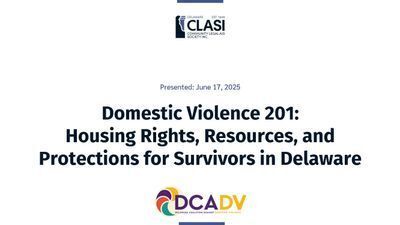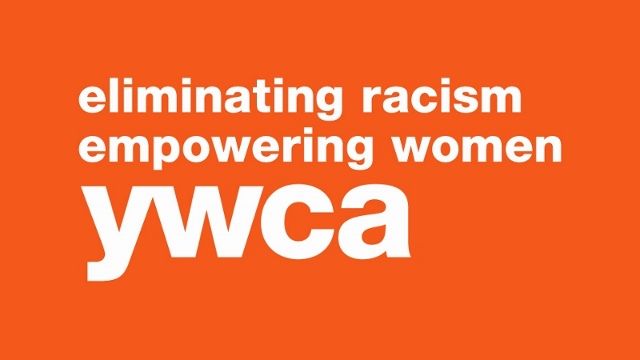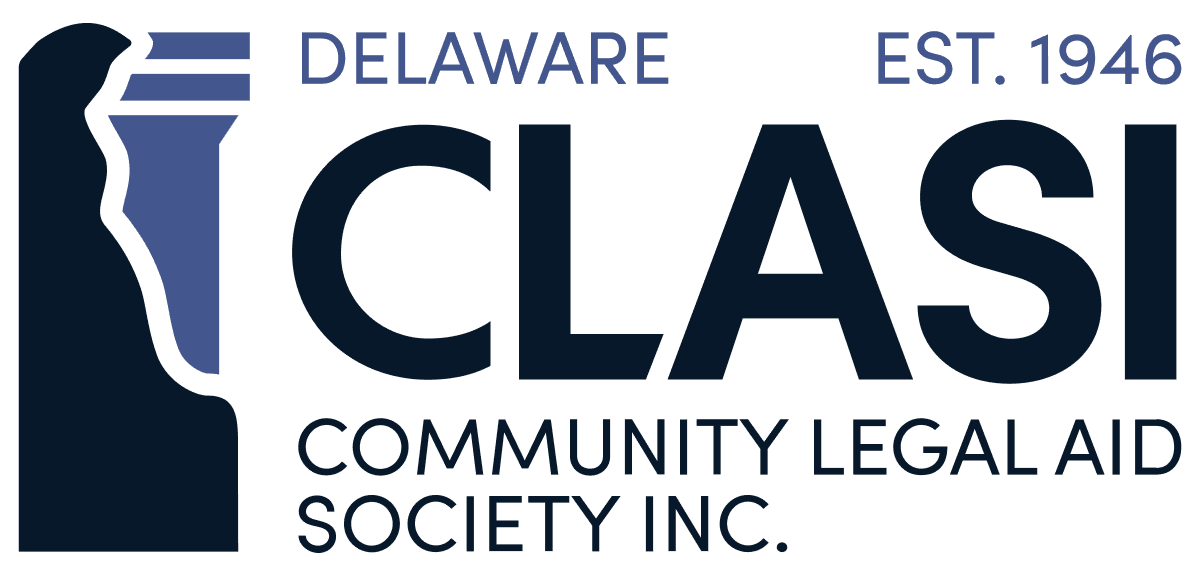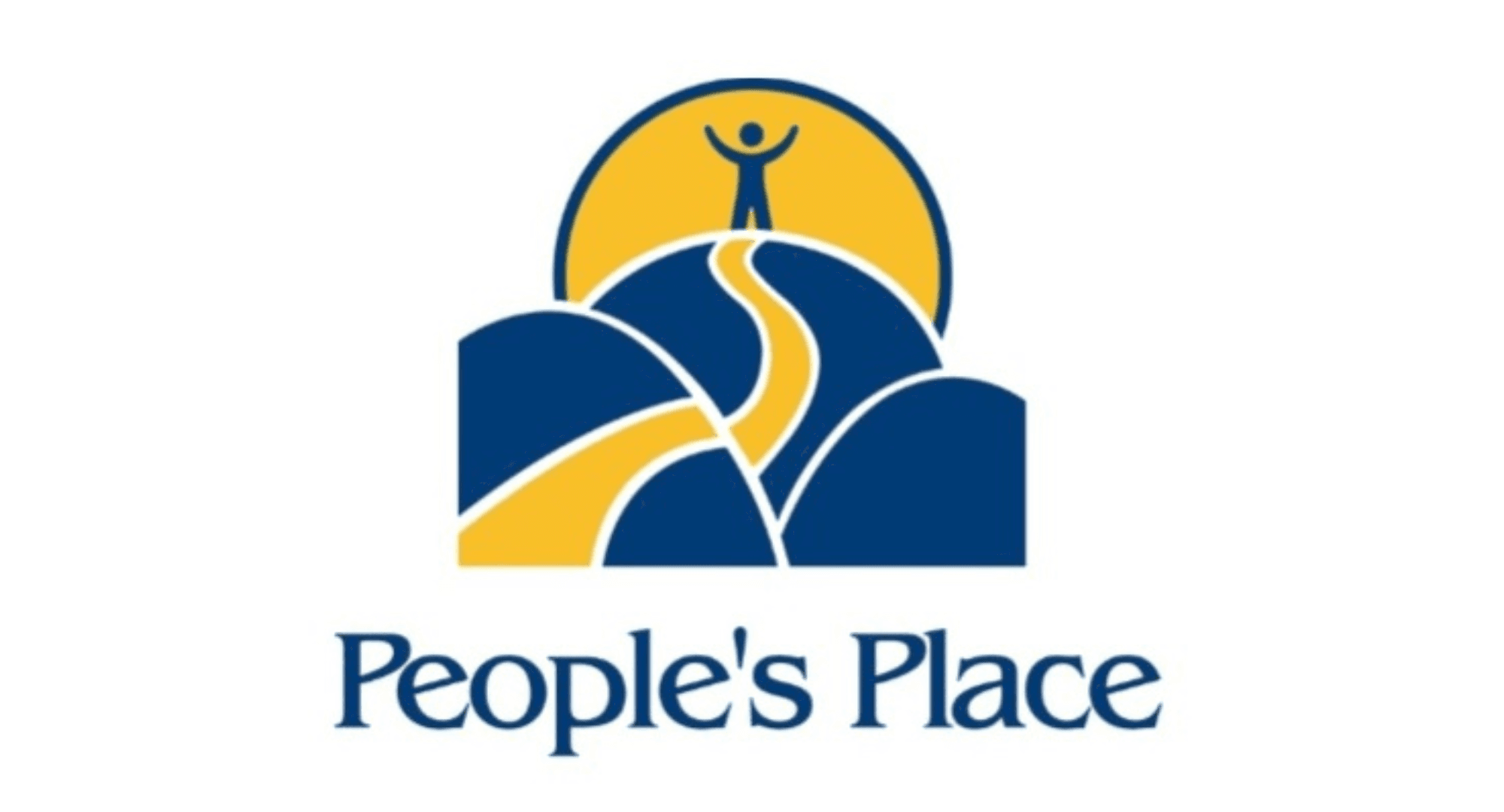Domestic Violence 201: Housing Rights, Resources, and Protections for Survivors in Delaware
-
Recorded 06/17/2025; 2 hours, 2 minutes

Ready to go beyond the basics? Domestic Violence 201 sessions offer a deeper exploration of critical topics that go beyond what’s covered in DV101. Each session focuses on a single, important subject, giving you the opportunity to expand your knowledge and skills. Sessions range from 1 to 3 hours, providing a focused and immersive learning experience. Join us as we take a closer look at the complexities of domestic violence and build our advocacy skills with deeper insights.
Housing Rights, Resources, and Protections for Survivors in Delaware
Participants will learn about Delaware housing law and the rights and responsibilities of tenants living in Delaware. We will also discuss housing challenges faced by survivors, and potential solutions for housing on the path to independence.
Presenter: Laura Carothers Graham, Esq., Community Legal Aid Society, Inc. (CLASI)
Laura Carothers Graham, Esq. (she/her) is an attorney at CLASI– a nonprofit law firm and legal aid program providing free civil legal services to Delawareans of low income, elders, and persons with disabilities. Her work at CLASI includes representation and systemic advocacy with regards to: immigration petitions for victims of violent crime, domestic violence, and child abuse; and working with community and healthcare providers to serve patients’ unmet civil legal needs through the Medical-Legal Partnership. Laura graduated from Juniata College in Huntingdon, Pennsylvania with her bachelor’s degree, magna cum laude, in political science and German. She earned her J.D. from Temple University School of Law in Philadelphia, Pennsylvania. Laura is a member of the Delaware and Pennsylvania Bars, and the U.S. District Court for the District of Delaware.
This session includes information about resources, policies, and procedures specific to the state of Delaware. All information is current and accurate as of the recording date (06/17/25).
It's recommended, but not required, that participants have attended Domestic Violence 101 or have some foundational DV training.
Helpful Links and Resources




